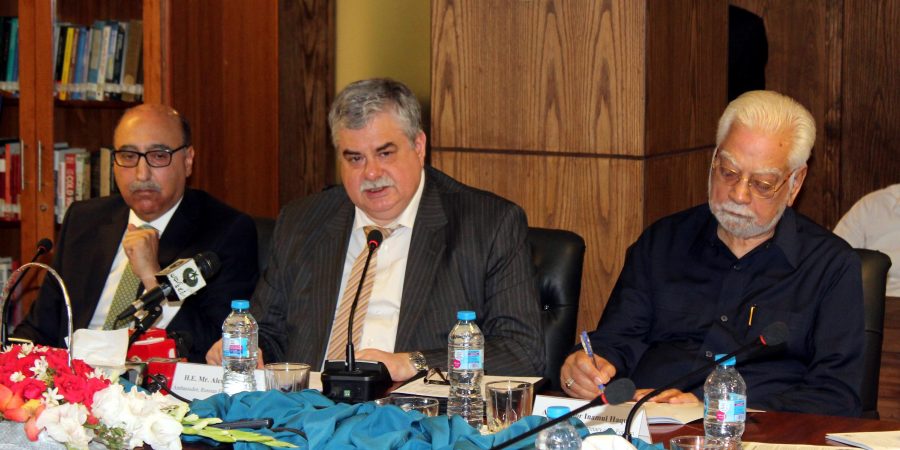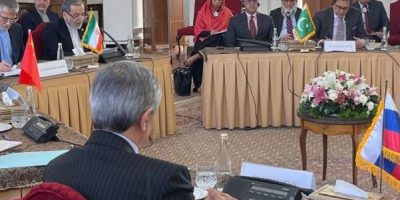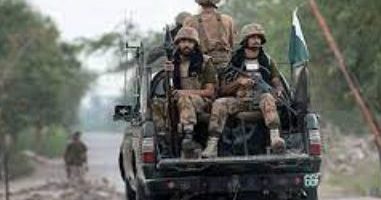Russia has no objection to Pakistan’s nuclear supplier group membership

ISLAMABAD, (DNA) – Russia has no objections to Pakistan’s membership of the Nuclear Suppliers’ Group. We are ready to work towards consensus-based discussions on this issue.
Given the complicated nature of the situation in Kashmir, Russia’s general position is that both countries should find a solution on bilateral basis in light of the Simla Agreement and the Lahore Declaration which they signed and mutually agreed on.
On its part, Russia has been trying to build trust between the two countries through the SCO forum. Once trust is restored, they will reach a final solution of the Kashmir issue.
Pakistan has its own independent value for Russia focused not just on counterterrorism cooperation, but also encompassing infrastructure development, energy cooperation, and naval and military cooperation.
This was stated by Ambassador Alexey Dedov, Ambassador of the Russian Federation to Pakistan at the Ambassador Lecture Series on ‘Pakistan-Russia Relations: Is there a New Trajectory?’ organized by the Islamabad Policy Research Institute, in the capital.
‘Today Islamabad is an important partner of Russia with whom we have mutually beneficial cooperation in all fields. The significance of Pakistan is determined by its role in regional politics, its influence in the Muslim world and its geostrategic position in close vicinity of the Commonwealth of Independent States borders. Our countries face similar challenges and threats to national security’, the Ambassador said. Interaction with Pakistan in the framework of the Shanghai Cooperation Organization (SCO), as a full-fledged member is very important for Russia to carry out cross-regional economic, energy and infrastructure projects, and ‘we are very glad that Pakistan is practically engaged in SCO, especially in joint counterterrorism efforts.’
Lauding the efforts made by the country and its sacrifices to combat terrorism in military operations such as Radd-ul-Fasaad, Ambassador Dedov acknowledged that Pakistan is one of the states which has suffered the most from terrorism, and has successfully rooted out terrorism in the tribal areas, bordering Afghanistan. ‘Russia will continue to support Pakistan in this regard’, he said.
The Russian Ambassador pointed out that while there were ups and downs in relations between the USSR and Pakistan because of specifics of international politics of the Cold War period, even during the most unfavourable periods Moscow continued to search out opportunities for expansion of its dialogue with Islamabad and render economic assistance to Islamabad. ‘Both countries are on the same page about respecting the sanctity of the sovereignty of states in this multipolar word, and against any steps taken in the guise of humanitarian pretexts.’
Talking about the conflict in Afghanistan, the Ambassador remarked that Russia believes that it is for the Afghans themselves to determine the pace and direction of the settlement in the country, ‘like Pakistan we believe that the national reconciliation process should be Afghan-owned and Afghan-led.’
Discussing other issues, the speaker shared that one priority area is further development of cooperation with Pakistan in combating illicit drug trafficking. ‘Since 2006, our country has been actively taking part in the Russia-NATO Council’s programme on training personnel of concerned agencies of Pakistan,’ he informed. The Ambassador also shared details about the various Pak-Russia parliamentary interactions and other high-level visits. ‘It is obvious that the development of parliamentary dimension of our interaction makes a significant contribution to ensuring a favourable climate in bilateral relations,’ he said.
However, sharing details about trade between Moscow and Islamabad, Ambassador Dedov was of the view that while the volume of trade in 2018 has been extremely promising standing at 450 million, with an 82 per cent growth rate, past performance in trade cooperation has not corresponded to its potential. ‘The low level of direct business ties and insufficient knowledge of Russia’s and Pakistan’s business communities about each other’s capabilities remain weak points,’ Mr Dedov lamented. ‘There are still financial counterclaims between our countries on compensation and freight payments of the Soviet period. Early settlement of mutual financial obligations about which an agreement has been mutually agreed on between both sides recently, will open up excellent opportunities for comprehensive investment cooperation with Pakistan’, he remarked. He also said that Russia is ready to cooperate with Pakistan to revamp the Steel Mills, but the government needs to be clear about what direction they want to take the Mills in, whether its privatization or otherwise. A definite decision needs to be taken by the Government of Pakistan, he advised.
‘We also intend to promote cultural and scientific ties with Pakistan’, Ambassador Dedov said and apart from cooperation in these areas, Russian education is also of profound interest to Pakistan. Several hundred Pakistani students are now studying in various Russian universities on educational grants allocated by the Russian government, he informed.
In conclusion, Ambassador Alexey Dedov said that given the past diplomatic interactions and potential future prospects, relations between Russia and Pakistan can be viewed with optimism. ‘Both countries make consistent efforts to strengthen mutually beneficial cooperation for the benefit of their people and in the interests of regional peace and stability,’ he concluded.
Earlier, IPRI’s President Ambassador (R) Abdul Basit in his welcome address said historically, diplomatic relations between Pakistan and Russia have oscillated from high to low phases. In the post-Cold War world and given the geopolitical changes taking place in Asia, the window of opportunity for strengthening Pakistan-Russia relations cannot be ignored. He added that Pak-Russia relations are slowly but steadily moving in the right direction. The new incoming government in Pakistan provides a good opportunity to review the relations and give a push to cooperation in all areas. He was hopeful that President Vladimir Putin would also be able to visit Pakistan in the not too distant future.
Related News

Pakistan stresses terrorism concerns at regional Afghanistan talks in Tehran
ISLAMABAD, DEC 14 /DNA/ – Pakistan participated in a crucial meeting of Special Representatives fromRead More

Security forces kill 13 Khawarij in KP operations
RAWALPINDI, DEC 14 /DNA/ – Thirteen khwarij belonging to Indian Proxy Fitna Al Khwarij wereRead More


Comments are Closed